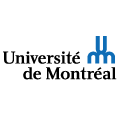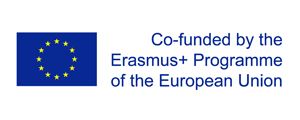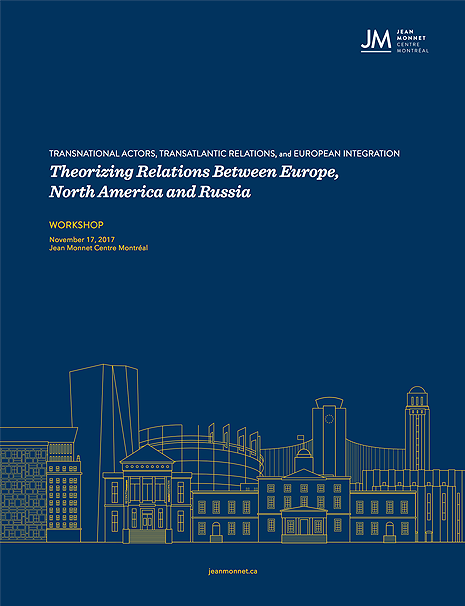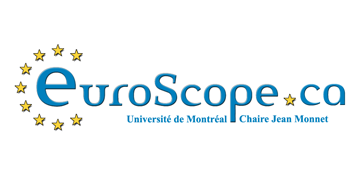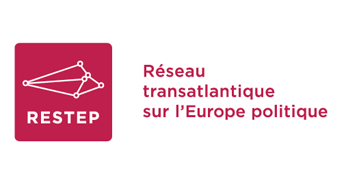Workshop: “Theorizing Relations Between Europe, North America and Russia”
While the post-Cold War decade is depicted as a honeymoon, tensions between the United States, the European Union and Russia appeared in 1999. Russia joined the coalition against terrorism and agreed to the formation of the NATO-Russia Council after 9/11, but the Kosovo War (1999), the expansion of NATO to former Soviet satellites in 1999-2004, the US missile defence plan (2007-09), the Georgian conflict of 2008, the energy crisis of 2009, the civil war in Ukraine and the annexation of Crimea have soured relations. Although relations between the West and Russia look bad in general, areas of cooperation remain, such as the facilitating of visas, the management of Kaliningrad or the environment in the Baltic Sea. Can we analyze and theorize EU/US-Russia relations by focusing on zones of contact between these geopolitical blocs? The aim of the workshop is to contextualize and nuance macro-level relations by looking at cases of countries and societies at the border, such as the Baltic countries, Kaliningrad or Moldova. On the one hand, we want to pay specific attention to transnational actors and social fields of interaction. On the other, we are interested in discussing theoretical approaches to analyze cooperation and conflict at the meso-level.
Download the PDF program here.
REGISTRATION IS MANDATORY
Please confirm your presence by sending an email to Elizabeth Chrun,a href=”mailto:elizabeth.chrun@umontreal.ca”>elizabeth.chrun[at]umontreal.ca
PROGRAM
9:00-9:30
Welcoming remarks by Juliet Johnson, co-director of the Jean Monnet Centre Montréal
Introductory remarks by Magdalena Dembinska and Frédéric Mérand, workshop co-organizers
9:30-11:00
Russia and the West in the Contact Zone
Chair: Antoine Rayroux, Concordia University
Discussant: Marco Siddi, Finnish Institute of International Affairs
“Cooperation and Conflit Between Europe and Russia: A Relational Approach”
Magdalena Dembinska and Frédéric Mérand, Université de Montréal
“Impact of the Ukraine Crisis on New EU-Russian Border Relations after Enlargement”
Joan DeBardeleben, Carleton University
“Russian Power versus the West’s Fading Power? The Case of Kaliningrad”
Anna-Sophie Maas, College of Europe, Natolin Campus, Poland
11 h – 11 h 15 Pause
11 h 15 – 12 h 15
Energy Cooperation and Conflit
Chair: Anastasiya Shtaltovna, Université de Montréal
Discussant: Frédéric Mérand, Université de Montréal
“To what Extent is Energy Trade a Cooperative Exception in the Crisis-Ridden EU-Russia Relationship?”
Marco Siddi, Finnish Institute of International Affairs
“Regulatory Environment in the Gas Sector: A Test Case for the EU-Russia Power Renegotiation Process”
Yann Breault, UQÀM
11:00-11:15 Break
11:15-12:15
Energy Cooperation and Conflit
Chair: Anastasiya Shtaltovna, Université de Montréal
Discussant: Frédéric Mérand, Université de Montréal
“To what Extent is Energy Trade a Cooperative Exception in the Crisis-Ridden EU-Russia Relationship?”
Marco Siddi, Finnish Institute of International Affairs
“Regulatory Environment in the Gas Sector: A Test Case for the EU-Russia Power Renegotiation Process”
Yann Breault, UQÀM
12:15-2:00 Break
2:00-3:00
IRussia’s Soft/Hard Power
Chair: Virginie Lasnier, Université de Montréal
Discussant: Angela Kachuyevski, Arcadia University
“La menace russe aux pays baltes : une construction mutuellement avantageuse?”
Ekaterina Piskunova, Université de Montréal
“Russian Political Election Interference in Latvia”
Pierre Jolicoeur, Royal Military College, Kingston
3:00-3:15 Break
3:15-4:15
Identity Formation in the “In-Between”
Chair: Stefan Morar, Université de Montréal
Discussant: Magdalena Dembinska, Université de Montréal
“The ‘Russian World’ and the Securitization of Identity Boundaries in Latvia”
Angela Kachuyevski, Arcadia University
Aspirational Iconography: Becoming European in Postcommunist States
Juliet Johnson and Benjamin Forest, McGill University
4:15-5:00 Wrap-up discussion


